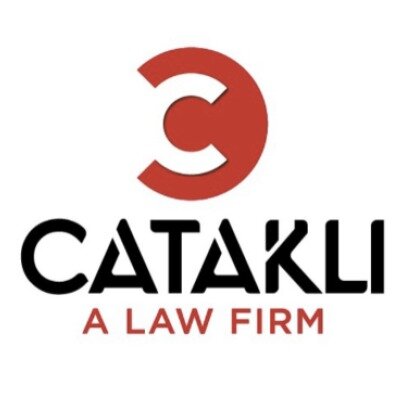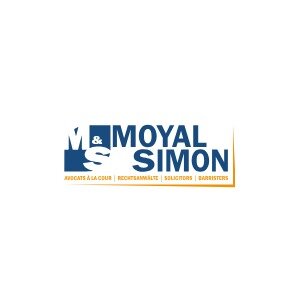Best Public-Private Partnerships (PPP) Lawyers in Luxembourg
Share your needs with us, get contacted by law firms.
Free. Takes 2 min.
List of the best lawyers in Luxembourg, Luxembourg
About Public-Private Partnerships (PPP) Law in Luxembourg, Luxembourg
Public-Private Partnerships (PPPs) in Luxembourg refer to collaborative agreements between public authorities and private sector companies. These arrangements aim to finance, build, and operate projects that traditionally fall under the public sector, such as infrastructure, transportation, healthcare, and public utilities. In Luxembourg, PPPs have gained popularity due to their ability to combine public oversight with private sector efficiency and innovation, offering solutions for major public projects while spreading the financial and operational risks.
Why You May Need a Lawyer
Engaging in a PPP project involves complex legal, financial, and regulatory considerations. Individuals, businesses, or consortia may seek legal advice in a variety of scenarios, such as:
- Drafting and negotiating PPP contracts to ensure fair and clear terms for all parties involved.
- Navigating Luxembourg’s procurement processes and public tender regulations.
- Managing risk allocation, including issues related to financing, construction, and operation of the project.
- Addressing disputes or conflicts that may arise between parties during the course of the partnership.
- Understanding compliance and regulatory obligations specific to Luxembourg.
- Securing project permits and ensuring environmental, safety, and labor law compliance.
- Advising on cross-border PPP projects involving other European jurisdictions.
Given the long-term and high-value nature of PPP projects, specialized legal guidance is often essential to protect your interests and ensure project success.
Local Laws Overview
Luxembourg does not have a unified PPP law but regulates PPPs through a combination of general contract law, public procurement legislation, administrative law, and sector-specific regulations. Key features of local regulation include:
- Public Procurement Law: The awarding of PPP contracts is governed by Luxembourg’s public procurement laws, which implement relevant EU Directives to ensure transparency, competition, and equal treatment for all bidders.
- Concession Laws: Certain types of PPPs, especially in infrastructure and utilities, may be structured as concessions, with long-term rights to operate and maintain a public asset.
- Administrative Oversight: Projects are often subject to approval by relevant ministries or local authorities, with oversight to safeguard public interest.
- Financing Regulation: PPPs require compliance with financial and budgetary rules, including evaluation of value-for-money and risk allocation.
- Sector-Specific Rules: Additional regulations apply to particular sectors, such as transportation, energy, or health, potentially requiring separate permits or licenses.
Legal advisors help navigate this multi-layered legal environment to ensure compliance during each stage of a PPP project.
Frequently Asked Questions
What is a Public-Private Partnership (PPP) in Luxembourg?
A PPP in Luxembourg is a long-term collaboration between public authorities and private sector parties to deliver public services or infrastructure projects, typically involving shared risks and responsibilities.
Are there special PPP laws in Luxembourg?
Luxembourg does not have a single, dedicated PPP law. Instead, general contract and public procurement laws, alongside sector-specific regulations, govern these projects.
Which sectors commonly use PPP structures in Luxembourg?
PPP arrangements are commonly used in public infrastructure projects, such as roads, bridges, schools, hospitals, transportation systems, and public utilities.
How are PPP contracts awarded?
PPP contracts are typically awarded through public procurement procedures, which require open, competitive bidding and compliance with EU and Luxembourg procurement rules.
What are the main risks in PPPs?
Risks include construction and project delivery delays, financing challenges, regulatory changes, operational risks, and potential disputes between public and private parties.
How are risks allocated in Luxembourg PPPs?
Risks are distributed according to negotiated contract terms, generally allocating specific risks to the party best able to manage them, such as construction, financial, or operational risks.
Do PPP projects require special permits or approvals?
Yes, PPP projects often require sector-specific permits, environmental clearances, and approvals from relevant public authorities.
Are PPPs subject to EU law in Luxembourg?
Yes, Luxembourg’s PPP framework is aligned with EU directives, particularly regarding procurement and competition rules.
Can foreign companies participate in Luxembourg PPPs?
Yes, foreign companies can participate in PPP projects, provided they comply with Luxembourg's legal, procurement, and sectoral requirements.
What should I do if a dispute arises in a PPP project?
Most PPP contracts specify dispute resolution mechanisms, such as negotiation, mediation, or arbitration. Legal advice is essential to protect your interests and guide you through the resolution process.
Additional Resources
If you are seeking more information or official guidance on PPP projects in Luxembourg, consider consulting the following resources and organizations:
- Ministry of Mobility and Public Works (Ministère de la Mobilité et des Travaux publics)
- Ministry of the Economy (Ministère de l’Économie)
- Business Registers (Registre de Commerce et des Sociétés - RCS)
- Luxembourg Chamber of Commerce
- Luxembourg Bar Association (Barreau de Luxembourg)
- European PPP Expertise Centre (EPEC)
These bodies can provide documentation, support, and contacts relevant to developing or participating in PPP projects.
Next Steps
If you believe you require legal assistance regarding a PPP in Luxembourg, consider the following steps:
- Clearly define your objectives and the specific issues for which you need advice.
- Gather all relevant documents, contracts, or communications related to your potential or ongoing PPP project.
- Research and select a lawyer or law firm with expertise in public procurement, construction law, and PPPs in Luxembourg.
- Request an initial consultation to discuss your case, the relevant legal framework, and your options moving forward.
- Work closely with your legal advisor to ensure compliance, effective risk allocation, and appropriate contract drafting or review.
Taking these actions can help you safeguard your interests and set your PPP project on a solid legal foundation.
Lawzana helps you find the best lawyers and law firms in Luxembourg through a curated and pre-screened list of qualified legal professionals. Our platform offers rankings and detailed profiles of attorneys and law firms, allowing you to compare based on practice areas, including Public-Private Partnerships (PPP), experience, and client feedback.
Each profile includes a description of the firm's areas of practice, client reviews, team members and partners, year of establishment, spoken languages, office locations, contact information, social media presence, and any published articles or resources. Most firms on our platform speak English and are experienced in both local and international legal matters.
Get a quote from top-rated law firms in Luxembourg, Luxembourg — quickly, securely, and without unnecessary hassle.
Disclaimer:
The information provided on this page is for general informational purposes only and does not constitute legal advice. While we strive to ensure the accuracy and relevance of the content, legal information may change over time, and interpretations of the law can vary. You should always consult with a qualified legal professional for advice specific to your situation.
We disclaim all liability for actions taken or not taken based on the content of this page. If you believe any information is incorrect or outdated, please contact us, and we will review and update it where appropriate.
















